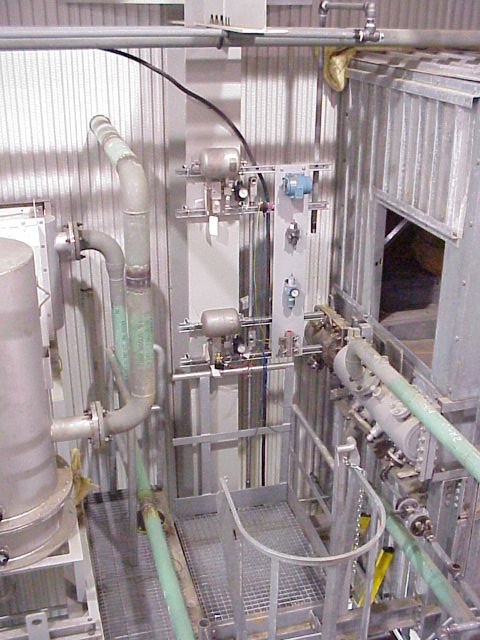Instrumentation engineering plays a pivotal role in the operations of a refinery, a complex facility where various substances such as crude oil are transformed into valuable products. The façade of large distillation towers, sprawling tanks, and intricate piping may capture one’s attention, yet the unseen intricacies of instrumentation and control systems are equally, if not more, captivating. Instrumentation engineers are at the helm of ensuring that these systems operate efficiently and safely, driving productivity while maintaining regulatory compliance.
At the heart of a refinery are the processes that convert raw materials into usable products. This transformation demands precise measurement and control of various parameters, including pressure, temperature, flow rate, and chemical composition. An instrumentation engineer is akin to a conductor orchestrating an intricate symphony, ensuring each component operates in harmony. Their role begins with the selection and specification of the various instruments needed to monitor and control these parameters: pressure sensors, temperature transducers, flow meters, and analyzers, among others.
After identifying suitable instruments, the instrumentation engineer must delve into the realm of design and implementation. This phase involves integrating these instruments into the refinery’s infrastructure. The engineer will design control systems that cater not only to operational efficiency but also to safety standards. Such systems often utilize a combination of both traditional control methodologies, such as PID (Proportional, Integral, Derivative) controllers, and modern process automation technologies, which can include programmable logic controllers (PLCs) and distributed control systems (DCS).
Moreover, the role encompasses the imperative of ensuring reliability. Since the processes within a refinery can be volatile, an instrumentation engineer is tasked with establishing fail-safe mechanisms. This is where redundancy in instrumentation systems comes into play. By employing multiple sensors to measure the same parameter, engineers ensure that if one sensor fails, others can continue to provide accurate data, thereby preventing potential mishaps. This redundancy not only safeguards personnel but also minimizes the risk of environmental hazards and equipment damage.
Instrumentation engineers are also engaged in the crucial family of calibration, validation, and maintenance of equipment. The efficacy of any measuring instrument wanes over time due to wear and tear, environmental conditions, and other factors. Regular calibration ensures that instruments provide precise measurements, which are vital for quality control and regulatory compliance. An aberration in measurement can lead to substandard products, wastage of resources, and financial losses—consequences that a vigilant instrumentation engineer seeks to preempt through diligent maintenance protocols.
The importance of communication can hardly be overstated. Instrumentation engineers frequently liaise with other disciplines within a refinery, including chemical engineers, mechanical engineers, and safety personnel. By fostering collaboration, they enhance the functionality of the control systems they design. This multidisciplinary approach facilitates the integration of instrumentation data into comprehensive monitoring and control strategies, allowing for real-time analysis and rapid response to any deviations from operational norms.
In recent years, the digital transformation of the oil and gas sector has become increasingly pertinent. With the advent of Industry 4.0, instrumentation engineers are now called to embrace advanced technologies such as the Internet of Things (IoT), machine learning, and big data analytics. These technologies have the potential to revolutionize how refineries operate. For instance, real-time data analytics derived from instrumentation can lead to predictive maintenance strategies, where potential equipment failures are identified and mitigated before they occur. Besides, the utilization of IoT devices enables remote monitoring, providing engineers with the ability to oversee operations from anywhere in the world.
The interplay between instrumentation engineering and sustainability is another area of burgeoning interest. As the global community re-evaluates its relationship with fossil fuels, refineries are under pressure to mitigate their environmental footprint. Instrumentation engineers can contribute significantly to this endeavor. By optimizing processes through accurate data acquisition and control—not only can emissions be reduced, but energy efficiency can be enhanced, often resulting in cost savings for the refinery.
The role of instrumentation engineers extends to regulatory compliance, where adherence to environmental and safety regulations is paramount. Engineers must be well-versed in applicable laws governing industrial operations. Non-compliance can lead to severe penalties and significant reputational damage. Instrumentation engineers are therefore responsible for ensuring that all instruments and processes comply with industry standards, requiring constant vigilance and adaptation to changing regulations.
In summary, the role of an instrumentation engineer in a refinery transcends mere oversight of instruments; it encompasses a holistic approach to operational excellence. By integrating technology, fostering communication across disciplines, and prioritizing safety and reliability, instrumentation engineers ensure the smooth operation of complex refining processes. Their work not only sustains the efficiency of the refinery but also contributes to broader societal goals, including environmental stewardship and regulatory compliance. Indeed, as the oil and gas industry continues to evolve amidst technological advancements and changing regulatory landscapes, the role of the instrumentation engineer will remain fundamental, and their contributions will reverberate throughout the industry.










